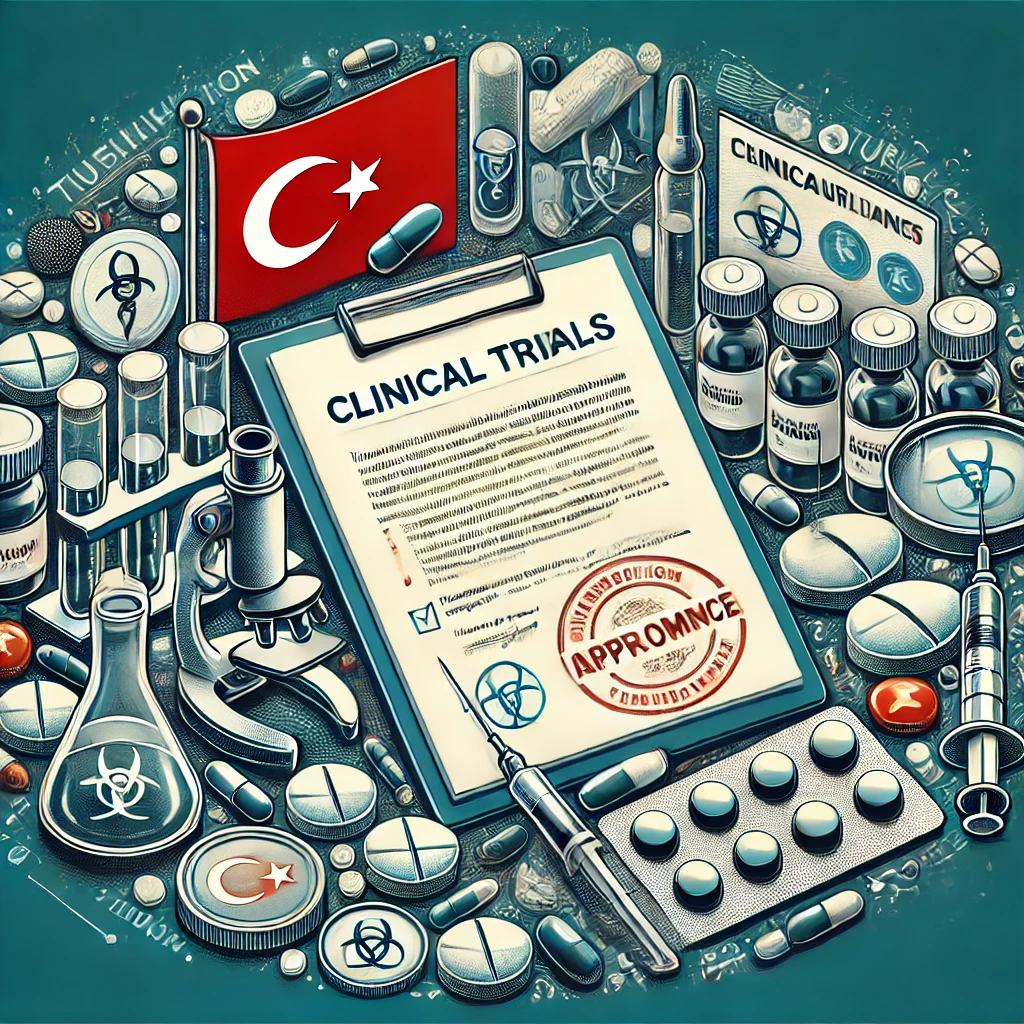Introduction
Clinical trials are essential for the development of new drugs and medical treatments, enabling pharmaceutical companies to assess the safety and efficacy of their products. In Turkey, the legal framework governing clinical trials aims to align with international standards while ensuring the protection of public health and the rights of participants. However, foreign pharmaceutical companies face specific challenges related to regulatory compliance, ethical approval processes, and administrative requirements. This article explores the legal regulations for clinical trials in Turkey and the challenges that foreign companies encounter in maintaining compliance.
1. Legal Framework Governing Clinical Trials in Turkey
- Regulation on Clinical Trials of Medicinal Products and Biological Products
- Turkey’s primary legal framework for clinical trials is governed by the Regulation on Clinical Trials, in force since 2014. This regulation outlines the procedures and requirements for conducting clinical trials and emphasizes the importance of informed consent, participant safety, and ethical review.
- Ethics Committees and TITCK Approval
- All clinical trials must receive approval from an Ethics Committee and the Turkish Medicines and Medical Devices Agency (TITCK). The Ethics Committee evaluates the ethical aspects of the trial, while TITCK focuses on the scientific and regulatory aspects.
- Alignment with International Standards
- Turkey’s clinical trial regulations are largely aligned with the European Medicines Agency (EMA) and Good Clinical Practice (GCP) guidelines, ensuring compliance with international norms. However, some local administrative differences can create challenges for foreign companies.
2. Requirements and Compliance Obligations for Foreign Companies
- Submission of Clinical Trial Dossiers
- Foreign companies must submit a detailed clinical trial dossier to TITCK, which includes information on the study design, methodology, patient recruitment process, and risk management plans.
- Appointment of a Local Representative
- Foreign pharmaceutical companies are required to appoint a local representative in Turkey to handle communications with regulatory authorities and ensure smooth trial operations.
- Compliance with Ethical Standards and Data Protection Laws
- Trials must adhere to the Personal Data Protection Law (KVKK) to ensure that participant data is protected. Additionally, companies must comply with stringent ethical standards throughout the trial process.
3. Challenges Faced by Foreign Pharmaceutical Companies
- Lengthy Approval Processes
- The dual approval process involving both Ethics Committees and TITCK often results in delays, making it difficult for companies to initiate trials within planned timelines.
- Differences in Local Regulations and Global Protocols
- While Turkey aligns with international standards, differences in local administrative processes create compliance challenges for companies that conduct multi-country trials.
- Currency Fluctuations and Financial Constraints
- Payment structures for clinical trials, especially for imported medicines, are subject to exchange rate volatility, affecting budget planning and profitability for foreign sponsors.
- Participant Recruitment and Retention Issues
- Recruiting participants in Turkey can be challenging due to cultural factors and regulatory constraints, impacting the timely completion of trials.
4. Legal Remedies and Strategic Solutions
- Use of Fast-Track Approval Mechanisms
- Foreign companies can collaborate with TITCK to benefit from fast-track approval programs for innovative therapies and urgent treatments.
- Engagement with Local CROs and Consultants
- Partnering with Contract Research Organizations (CROs) and local regulatory consultants helps foreign companies navigate compliance challenges and streamline operations.
- Dispute Resolution Mechanisms
- Companies facing disputes with regulatory bodies or contractual partners may pursue administrative remedies or seek resolution through arbitration or litigation in Turkish courts.
5. Conclusion
While Turkey offers a favorable environment for clinical research, foreign pharmaceutical companies must overcome regulatory delays, administrative complexities, and compliance hurdles. Engaging with local partners, understanding ethical requirements, and proactively managing financial risks can help mitigate these challenges. As Turkey continues to align with international clinical trial standards, further reforms may enhance the country’s attractiveness for foreign investments in pharmaceutical R&D.

Yanıt yok